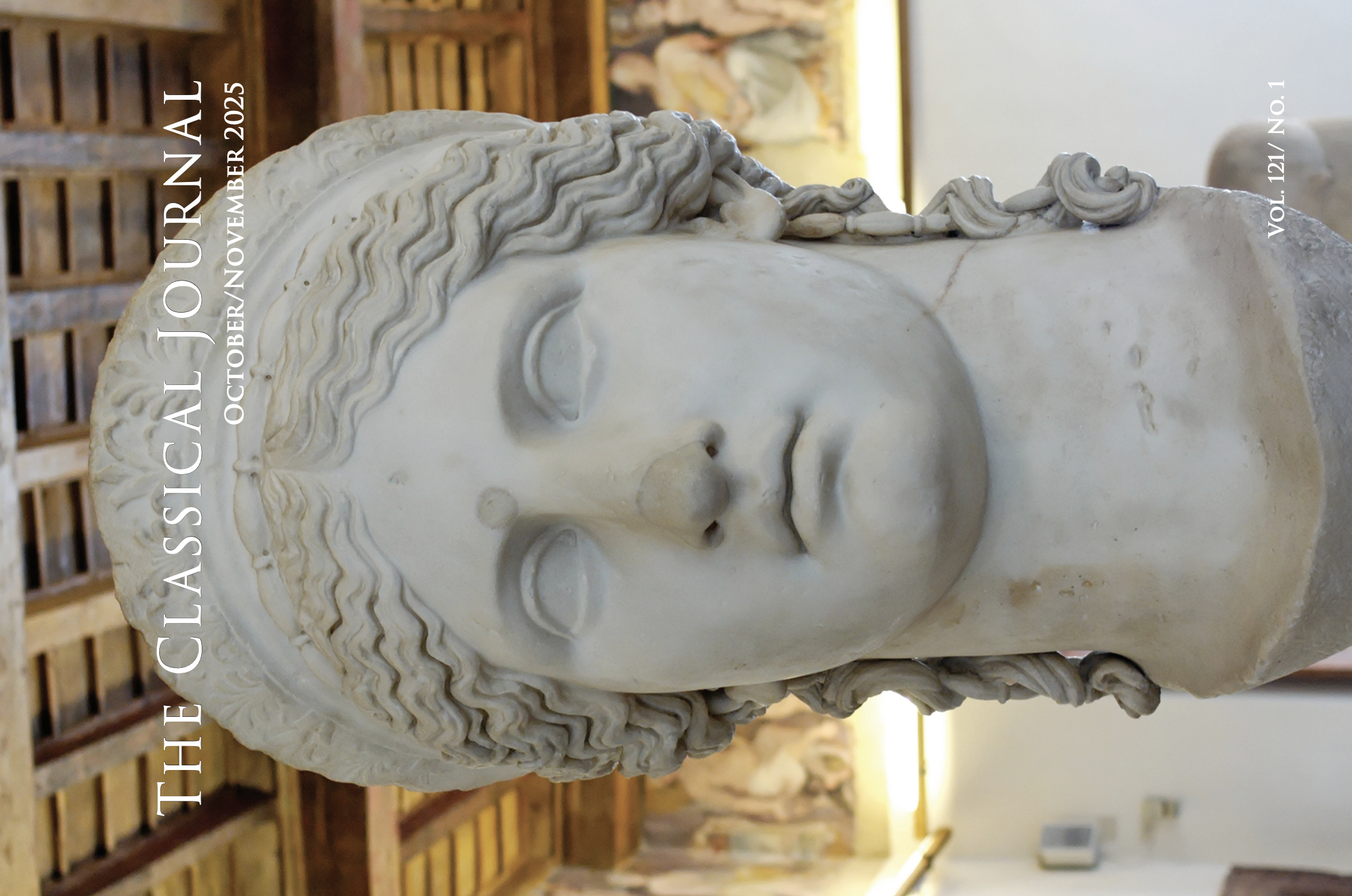The following articles are contained in CJ
120.4
Abstracts of Articles
Delphi and the Panhellenic Origins of Philosophy in Plato’s Protagoras
Near the middle of Plato’s Protagoras, Socrates claims that the origins of philosophy lie in Crete and Sparta (342a–343c). While scholars have often taken this claim to be absurd, in this article I suggest that Socrates uses it to decenter Athens as the “school of Greece,” as depicted in Thucydides’ Periclean Funeral Oration (2.41) and reflected in the dramatic setting of the Protagoras. He focuses instead on the sanctuary of Apollo at Delphi. His recentering of Delphi depicts philosophy as a Panhellenic enterprise and prioritizes the sanctuary’s religious and cultural importance.
Aristophanes’ Banqueters and the Design of Republic 1
Aristophanes says that Clouds, a recognized model for Plato’s Republic, is a reworking of his first play Banqueters (Δαιταλεῖς). Plato uses the δαιτ- stem only at Rep. 1.345c and Timaeus 17a, where Socrates calls yesterday’s hosts of Republic “banqueters” (δαιτυμόνων). Aristophanes’ Banqueters featured two sons and educations, one traditional and prudent, the other, called Thrasymachus, rhetorical and “buggered.” The blush of Plato’s Thrasymachus likely suggests the “buggering” of his argument. The chorus of Banqueters were θιασῶται of Herakles, which explains the rowdy mock–kidnapping of Socrates in the proemion and Herakles imagery throughout. Banqueters’ early date (427 BC) could explain Thrasymachus’ role in Republic I, if the dialogue is tracing the fall of Athenian democracy in the Peloponnesian War, using the theme of failed education.
Did the Hellenistic Stoics Consider Diogenes’ and Zeno’s Republics Spurious?
In this article I reassess the ancient evidence for a Hellenistic Stoic debate about the authenticity of the two Republics written by Diogenes of Sinope and Zeno of Citium, respectively. I argue that while a Stoic attempt to reject the authenticity of Diogenes’ Republic is clearly attested in the 1st century BCE, the evidence for a similar attempt with regard to Zeno’s Republic is scant and problematic. Most sources attest that various Hellenistic Stoics criticized the work, but usually did not consider it spurious. If some Stoics cast doubts on the authenticity of Zeno’s Republic, such a position was in the minority.
The Body of the Scribe
In this article I contribute a close study of scribal practices focused on the scribe’s lived experiences and embodied knowledge. The methodological approach weaves together evidence from literary texts, material culture and comparanda from several illuminating scribal traditions, especially from the artisan knowledge and lived experiences of still-practicing scribes in the Ethiopian Ge’ez tradition. This evidence indicates that ancient Mediterranean copyists employed methods that preserved their bodies from the pain and damage reported by later scribes. I argue from these findings that the history of the book itself is predicated on the work and on the embodied knowledge of the body of the scribe.


